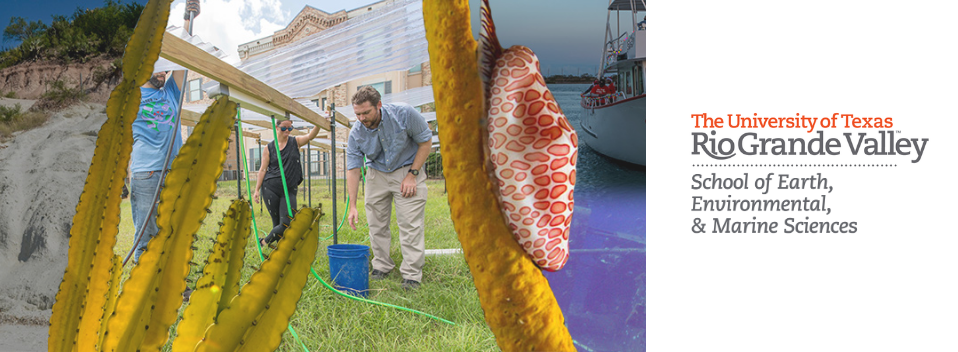
School of Earth, Environmental, & Marine Sciences Faculty Publications
Document Type
Article
Publication Date
4-30-2022
Abstract
Harvester ants often selectively forage seeds, causing these ants to be viewed as pests in agricultural areas where they may forage on crop seeds. While little research has been done on harvester ant preferences for cover crop seeds, grower observations in the Lower Rio Grande Valley (LRGV) suggest that ants may remove these seeds before germination. We examined red harvester ant (Pogonomyrmex barbatus F. Smith) preferences for cover crop seeds (fescue, oat, sunn hemp, radish, vetch, and wheatgrass) and the effects of a commonly used bacterial seed inoculant. We evaluated relative preferences using seed depots presented to colonies with no prior exposure to the selected seeds or inoculants. After 24 h, ants had removed oat and radish seeds at the same rate as the preferred wheatgrass control. Fescue, sunn hemp, and vetch seeds were less preferred. The bacterial inoculation of wheatgrass and radish seeds did not alter the removal rates. Further, ant removal of seeds in both trials was dependent on the month and temperature, indicating potential interactions of colony activity levels, availability of seeds in the seed bank, and the intensity of cover crop seed removal. Together, these data indicate that harvester ant foraging preferences and seasonal activity should be considered to help mitigate potential ant predation of cover crops via planting less preferred seeds and at times of lower ant foraging intensity.
Recommended Citation
Elliott-Vidaurri, L.V.; Rivera, D.; Noval, A.; Choudhury, R.A.; Penn, H.J. Red Harvester Ant (Pogonomyrmex barbatus F. Smith; Hymenoptera: Formicidae) Preference for Cover Crop Seeds in South Texas. Agronomy 2022, 12, 1099. https://doi.org/10.3390/agronomy12051099
Creative Commons License

This work is licensed under a Creative Commons Attribution 4.0 International License.
Publication Title
Agronomy
DOI
10.3390/agronomy12051099


Comments
© 2022 by the authors. Licensee MDPI, Basel, Switzerland.